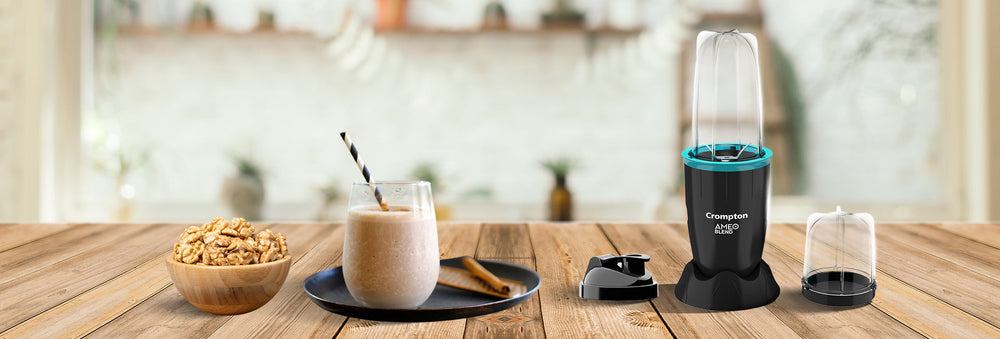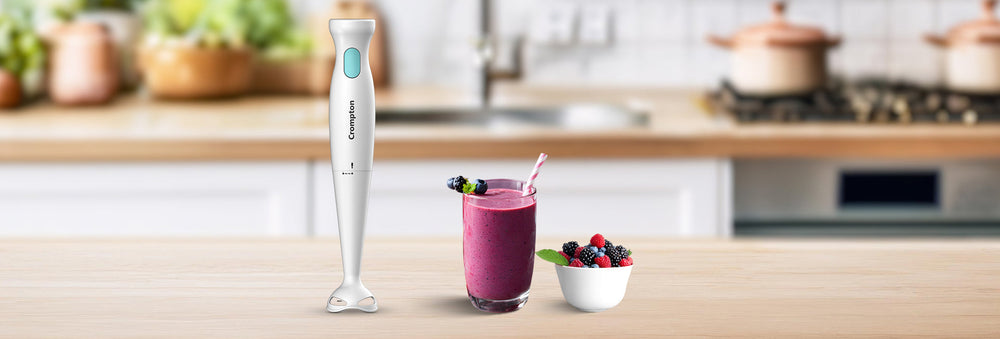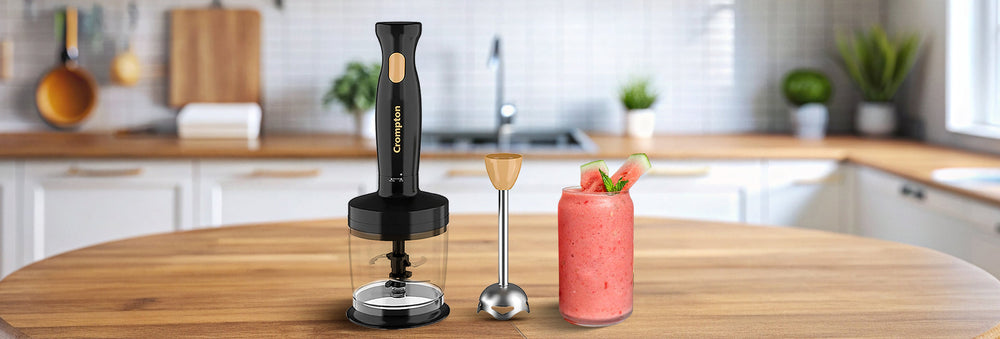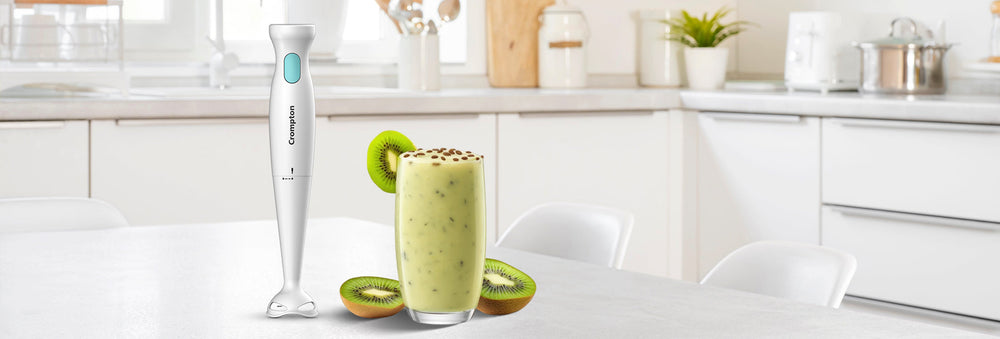Kitchen Face-Off: Blender vs Mixer Grinder


Are you struggling to decide between a blender and a mixer grinder for your kitchen needs?
Blender vs Mixer Grinder – the age-old debate has left many home cooks and professional chefs alike scratching their heads.
In this comprehensive guide, we’ll dive deep into the features, benefits, and drawbacks of each appliance, helping you make an informed decision. Say goodbye to confusion and hello to the perfect kitchen companion, tailored to your culinary requirements and preferences.
What is a Blender Used for?
A blender is a versatile kitchen appliance with numerous applications, making it a valuable addition to any kitchen. Blenders are commonly used for making smoothies, sauces, dips, spreads, soups, beverages, and desserts.
They can also be used for grinding nuts, making nut butter, pureeing baby food, and even grinding less fibrous proteins like shrimp or fish. Additionally, blenders can process grains and cereals, create powdered sugar, and mix batter for pancakes and muffins.
What is a Mixer Grinder Used for?
A mixer grinder is a versatile kitchen appliance that serves multiple purposes, making it an essential tool in many households. Primarily, mixer grinders are used for grinding solid food items into smaller particles or powders, such as spices, nuts, and coffee beans.
They can also help in making fresh spice or seasoning powders for dishes, which often have more flavour than store-bought seasoning powders. Additionally, mixer grinders can chop hard meat and vegetables into a mash or baby food.
9 Differences Between Blender and Mixer Grinder
Blender vs mixer grinder, a common confusion can easily be solved by deeply understanding the actual difference between the two.
When it comes to kitchen appliances, understanding the difference between a blender and a mixer grinder is crucial for selecting the right tool for your needs. Here, we will discuss the nine key differences between these two appliances.
1. Functions
A blender is primarily designed for blending, mixing, and pureeing soft food items and liquids.
Whereas, a mixer grinder is more suitable for grinding hard food items into smaller particles or powder. There are different types of blenders available, each with its own unique features and capabilities.
2. Capabilities
Blenders are ideal for making smoothies, soups, and sauces.
While mixer grinders excel at tasks like grinding spices, nuts, and coffee beans, as well as chopping meat and vegetables. To choose the best mixer grinder for your kitchen, you can refer to this buying guide.
3. Performance
In terms of performance, blenders are typically more powerful for blending and mixing tasks.
Mixer grinders are better suited for grinding tasks. The difference in performance is mainly due to the design and motor power of each appliance.
4. Power Consumption
Power consumption varies between blenders and mixer grinders. Generally, blenders consume less power than mixer grinders, as they are designed for lighter tasks and have smaller motors.
5. Ease of Use
Blenders are usually easier to use, with simple controls and fewer attachments.
Mixer grinders, on the other hand, may require more effort in assembling and disassembling various parts for different functions.
6. Versatility
While both appliances are versatile, a mixer grinder is often more adaptable for various tasks, such as dry and wet grinding, making it more suitable for diverse culinary needs.
Blenders are Ideal for smoothies and purées, liquifying and blending soft ingredients, and crushing ice.
To better understand the differences between a mixer grinder and a food processor, you can read this blog.
7. Maintenance
Maintenance for both appliances is relatively simple, but mixer grinders may require more attention due to their multiple attachments and components.
8. Cleaning
Cleaning a blender is generally easier, as most models have removable parts and can be cleaned quickly.
Mixer grinders, with their multiple attachments, may require more effort and time for thorough cleaning.
9. Affordability
The cost of a blender vs grinder can vary, but generally, blenders are more affordable as they cater to a smaller range of tasks.
Mixer grinders, with their added functionality, may come at a higher price point.
Blender vs Mixer Grinder: What Should You Choose?
When it comes to choosing between a blender and a mixer grinder, the decision ultimately depends on your specific needs and preferences, as both appliances offer unique features and capabilities. Both blenders and mixer grinders are valuable tools in the kitchen, catering to different tasks and requirements.
Crompton’s Blendserve PT Hand Blender is an excellent choice for those who need a versatile appliance for blending, mixing, and pureeing soft food items and liquids. It is particularly suitable for making smoothies, soups, and sauces.
You should also check out Crompton’s Ameo Neo Mixer Grinder, which is a perfect choice for those who require an appliance that can handle grinding tasks, such as grinding spices, nuts, and coffee beans, as well as chopping meat and vegetables.
Conclusion
Ultimately, in the debate between blenders vs grinders, both have their unique strengths and applications. It is essential to assess your specific needs and preferences in the kitchen to determine which appliance would be the best fit for you.
By understanding the difference between a mixer grinder and a blender, you can make an informed decision and ensure that your kitchen is well-equipped to handle various food preparation tasks.
FAQs on Blender Vs Mixer Grinder
1. Can I use a blender for grinding spices?
A blender is not ideal for grinding spices; a mixer grinder is more suitable for this task.
2. Can I make juices in a mixer grinder?
Yes, you can make juices in a mixer grinder with the right attachment.
3. Is it safe to use hot liquids in a blender?
It’s not advisable to use hot liquids in a blender, as it may cause damage or injury.
4. Can a blender replace a mixer grinder?
A blender cannot fully replace a mixer grinder, as they serve different functions and capabilities.

 Read Previous Blog
Read Previous Blog



 at 9228880505 or write to us at
at 9228880505 or write to us at 